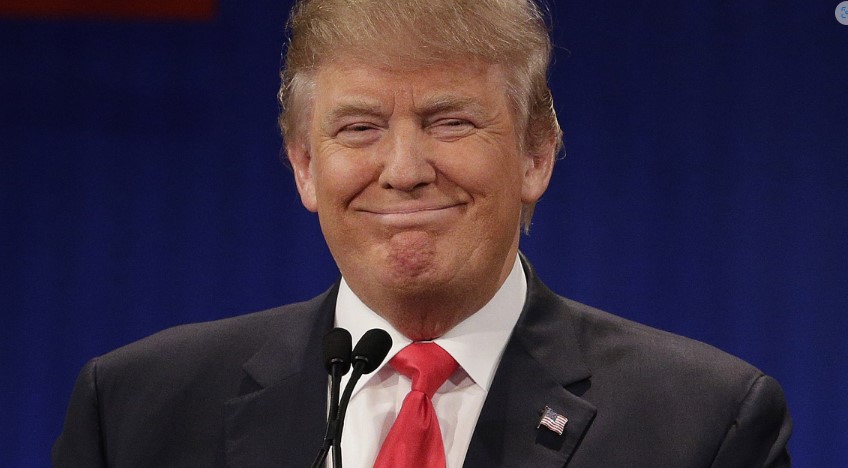As the presidential campaign heats up in the United States, there are palpable concerns among national governments around the world that have strong economic relationships with the country including Nigeria.
Analysts believe that a second presidency of Donald Trump would bring a series of potential impacts on the Nigerian economy, driven by his distinct approach to international trade, foreign policy, and immigration.
Trump’s first term was marked by a preference for protectionist trade policies, including tariffs and renegotiated trade agreements aimed at prioritizing American industries. Should he pursue similar policies in a second term, Nigerian exports to the United States might face higher tariffs or more stringent trade barriers.
This could particularly affect Nigeria’s oil exports, a significant component of its trade relationship with the U.S. According to the United Nations COMTRADE database on international trade, Nigeria exported crude oil worth $3.9 billion in 2023.
According to a financial economist at Nnamdi Azikiwe University, Dr. Felix Echekoba, Trump has a history of renegotiating trade agreements to favour American interests, as seen with NAFTA’s replacement by USMCA.
“If he extends this approach to trade agreements with African nations, it might lead to a review of agreements under the African Growth and Opportunity Act (AGOA). Any unfavourable changes could diminish Nigeria’s access to U.S. markets for its non-oil exports, he said.
Echekoba added that the Trump administration previously signalled a preference for reducing foreign aid. “A second term could see further cuts or stringent conditions attached to aid, potentially impacting the financial assistance Nigeria receives for health, education, and infrastructure projects,” he stated.
“Trump’s “America First” policy might lead to reduced U.S. foreign direct investment (FDI) in Nigeria. American companies could face increased domestic incentives to invest within the U.S., potentially diverting funds away from Nigerian ventures,” noted a stockbroker on the Nigerian Exchange, Ayo Johnson.
Johnson further said a second Trump term could see continued or enhanced restrictive immigration policies, which could affect the Nigerian diaspora in the U.S., potentially leading to stricter visa policies or deportations. He said remittances from the Nigerian community in the U.S. play a crucial role in Nigeria’s economy, and any reduction in these flows could negatively impact many Nigerian households.
“Tighter immigration controls could also limit the mobility of skilled Nigerian workers to the U.S., affecting both individual livelihoods and the flow of knowledge and skills back to Nigeria,” stated Johnson.
Also commenting, Development and Energy economist at Adeleke University, Professor Tayo Bello, said the Trump administration’s energy policies, including deregulation and support for increased domestic oil production, could affect global oil prices.
He said increased U.S. oil production typically leads to lower global oil prices, which could negatively impact Nigeria, whose economy is heavily reliant on oil revenues. However, stated Bello, geopolitical tensions driven by Trump’s foreign policy could also cause oil price volatility, creating uncertainty for Nigerian oil exports.
“Trump has shown a willingness to use the Strategic Petroleum Reserve (SPR) to influence oil prices. If he were to release significant amounts of oil from the SPR, it could depress global oil prices, again adversely affecting Nigeria’s oil revenue,” he added.
Speaking about insecurity, a security expert, who pled anonymity, stated that Nigeria has benefited from U.S. support in counterterrorism efforts, particularly against Boko Haram. He said a second Trump term might continue this support, but it could also be contingent on Nigeria aligning with broader U.S. geopolitical interests, potentially complicating Nigeria’s diplomatic positioning.
He said a continuation of Trump’s hardline stance against China might indirectly affect Nigeria. “Given Nigeria’s strong economic ties with China, increased U.S.-China tensions could force Nigeria to take the path of a more complex international environment, balancing relations with both major powers.
Trump’s unpredictable policy decisions often led to volatility in global financial markets. A second term could bring similar instability, affecting investor confidence and capital flows to emerging markets like Nigeria.
On his part, the President of the Independent Shareholders’ Association of Nigeria, Moses Igbrude, cautioned that policies that lead to a stronger U.S. dollar could impact Nigeria’s foreign exchange rates.
“A stronger dollar makes Nigerian imports more expensive and could exacerbate inflationary pressures within the country,” he said.
A second Trump presidency could introduce significant uncertainties and challenges for the Nigerian economy. The potential for stricter trade policies, reduced foreign aid, volatile oil prices, and more restrictive immigration controls could all have adverse effects.
However, Nigeria’s response to these challenges—such as diversifying its economy, strengthening ties with other global partners, and enhancing domestic economic policies—will be crucial in mitigating negative impacts and seizing any emerging opportunities.

